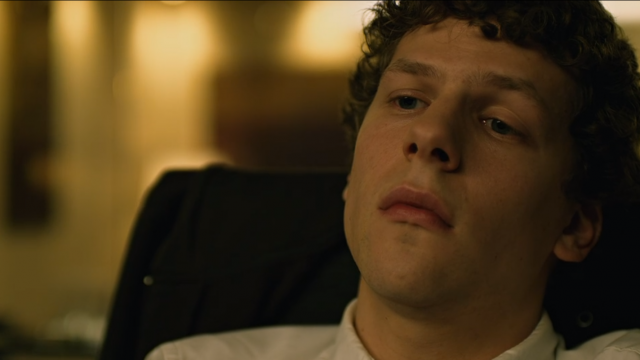The Social Network is a movie that intimately ties itself to its release year by virtue of being a classic tragedy that plays by all the traditional rules. This is the story of an elite man who burns up every ideal and every relationship placed in front of him in a quest for power, exactly like Oedipus Rex and Macbeth and The Shield before it, and even the fact that it’s about elites who not only aren’t murdering each other but never even consider raising a hand to each other – great joke late in the movie when Eduardo pulls back his fist at Sean and takes pleasure in seeing him flinch – only makes it resemble your classic rise and self-destruction of a rock star even more, where the main emotional thread is two young people who knew each other before they were big. This all ends up highlighting the things that are truly novel about the movie. This is a techbro tragedy, in which Mark embodies the values and spirit of Silicon Valley and follows them all the way to the end, revealing as much of their virtues as their faults. The thing that struck me rewatching TSN for this essay was that Mark is genuinely creative – he may not have come up with the original idea, but he managed to spin many great offshoots onto that idea that are part of The Facebook’s success. I especially like the scene where he gets the idea for the ‘relationship status’, because it highlights how much The Facebook has been successful because it quantified social interaction, which is the source of Facebook’s real life destructive power.
Destruction is also part of those techbro values. One thing I think about a lot is the story of a Silicon Valley guy who tried reinventing – ‘disrupting’ was his phrase – the concept of the toasted sandwich shop, and it was widely mocked as the absurd final conclusion of techbros trying to break down the old ways not because the old ways weren’t working but to get some of that sweet archetypal Badass Rebel power. In this movie, one of the effects of Mark’s actions is that he runs roughshod over the unwritten rules of Harvard, revealing them to have no actual power; when the Winklevii try playing off an actual rule that he broke, they find themselves humiliated, turned away, and forced to break a cherished code of conduct to even have the chance to annoy him. During the depositions, Mark makes brash and arrogant statements insulting the intelligence of everyone who challenges him; if you interpret Marylin Delpy’s line on him (“You’re not an asshole, Mark. You’re just trying to hard to be.”) not as a value judgement but as an observation on specific behaviours, then yes, he’s actively recreating behaviours of assholes (especially Sean Parker), destroying social expectations purely because he’s powerful enough to do so, and he justifies his power as coming from how smart he is. The fact that Facebook is now an integral social structure is another standard irony that reality can reliably deliver – the rebel that became the old guard. It’s also part of the movie’s emotional arc; Eduardo is brought low because he believes in the idea of a CFO and of a friend, and Mark destroys that as easily as he destroys the idea of exclusive Harvard clubs.

